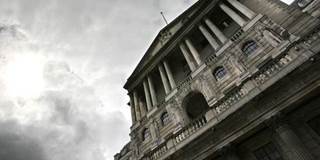With interest rates in many countries at or near zero, aversion to fiscal expansion reflects raw ideology, not pragmatic considerations. That means a flanking move might be required, one that takes advantage of the fact that “monetary policy” is and always has been “fiscal policy.”
BERKELEY – For countries where nominal interest rates are at or near zero, fiscal stimulus should be a no-brainer. As long as the interest rate at which a government borrows is less than the sum of inflation, labor-force growth, and labor-productivity growth, the amortization cost of extra liabilities will be negative. Meanwhile, the upside of extra spending could be significant. The Keynesian fiscal multiplier for large industrial economies or for coordinated expansions is believed to be roughly two – meaning that an extra dollar of fiscal expansion would boost real GDP by about two dollars.

BERKELEY – For countries where nominal interest rates are at or near zero, fiscal stimulus should be a no-brainer. As long as the interest rate at which a government borrows is less than the sum of inflation, labor-force growth, and labor-productivity growth, the amortization cost of extra liabilities will be negative. Meanwhile, the upside of extra spending could be significant. The Keynesian fiscal multiplier for large industrial economies or for coordinated expansions is believed to be roughly two – meaning that an extra dollar of fiscal expansion would boost real GDP by about two dollars.